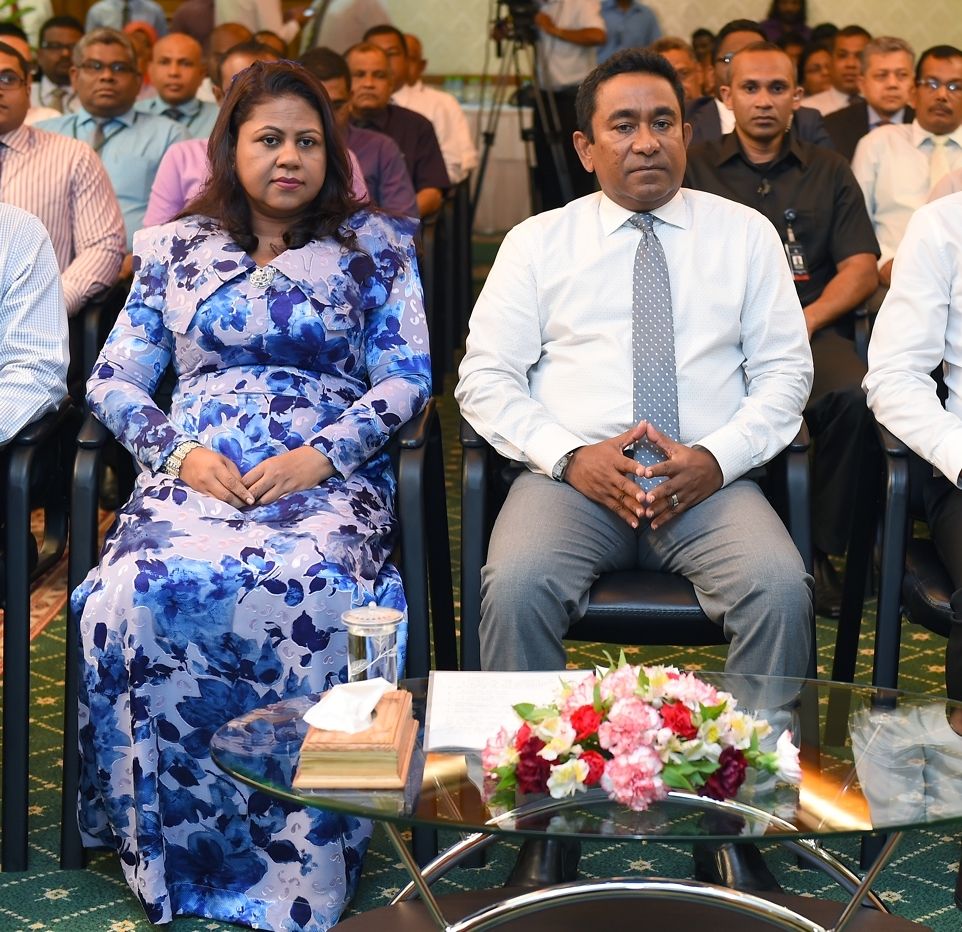Defence witness refuses to testify in ex-president’s money laundering trial
The defence wanted to call former central bank governor Dr Azeema Adam.

25 Sep 2019, 09:00
Former central bank governor Dr Azeema Adam has refused to testify as a defence witness in former president Abdulla Yameen’s money laundering trial.
In response to a summons, the former governor informed the court that she could not attend as she was working overseas, Judge Ahmed Hailam announced at the start of Wednesday’s hearing. Since Azeema also said there was no testimony she could provide and declined to appear, Judge Hailam said he has decided not to summon her to court.
She was the only witness the defence planned to call on behalf of Yameen.
Azeema stepped down in August 2016 and relocated to New York after her husband Dr Ali Naseer took up the posts of permanent representative to the United Nations and ambassador to the United States. Naseer was appointed multilateral secretary at the foreign ministry after completing his term as the permanent representative last May.
Become a member
Get full access to our archive and personalise your experience.
Already a member?
Discussion
No comments yet. Be the first to share your thoughts!
No comments yet. Be the first to join the conversation!
Join the Conversation
Sign in to share your thoughts under an alias and take part in the discussion. Independent journalism thrives on open, respectful debate — your voice matters.




